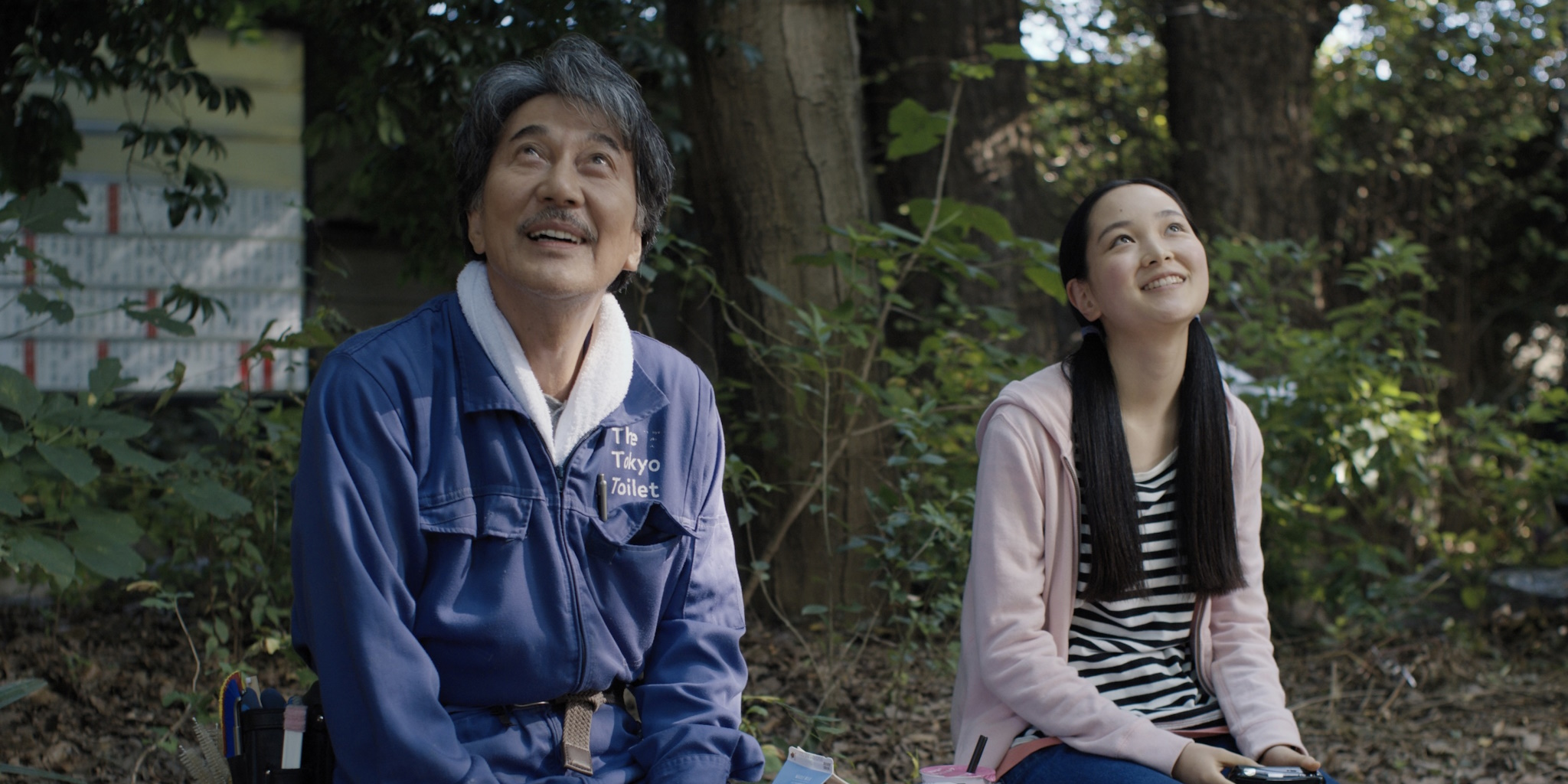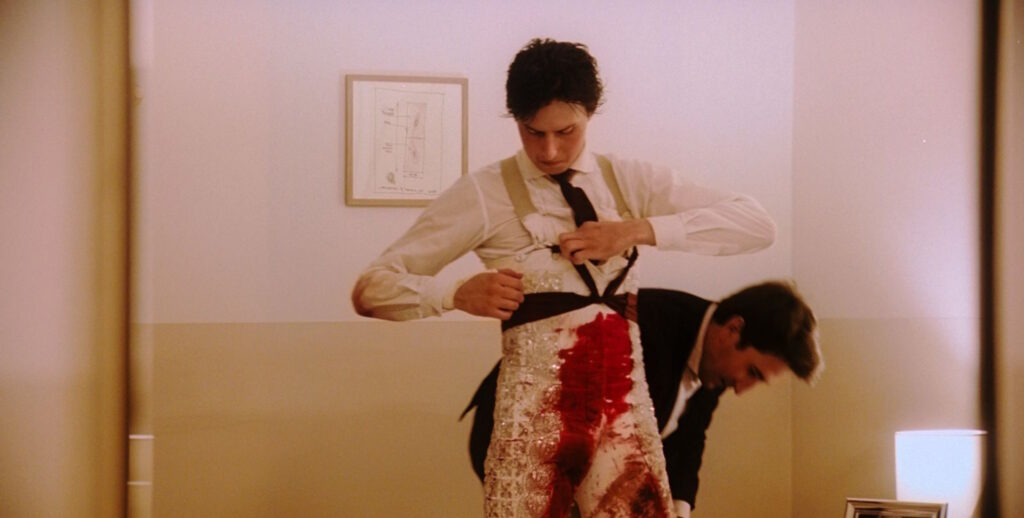As a showcase for the Tokyo Toilet Project, Wim Wenders’ latest narrative feature is a bona fide success. The project consists of a dozen public restrooms, all with unique features, crafted with the help of an international team of architectural creatives. It’s no joke: Beginning in 2020, a total of 17 different bathrooms throughout the city’s Shibuya district were renovated with the hope of highlighting the beauty and the diversity present in even the most mundane and unexpected places. To shed light on this unique undertaking, the project’s leads reached out to Wenders in the hope that he would agree to film a short documentary on the subject. Instead, Wenders opted for a narrative feature centered on the man who cleans these artisanal restrooms.
Perfect Days follows Hirayama (Kōji Yakusho), a photo-taking, music-loving janitor who personifies the phrase “creature of habit.” From dawn till dusk, his every move is accounted for and executed without so much as a second thought. Wake up, make bed, brush teeth, trim mustache, eat breakfast, start car, pick cassette, play music, head out, clean toilets, go home, ride bike, water plants, read book, wind down, fall asleep … and repeat. Hirayama goes through the motions in silence, save for the occasional insipid interaction with co-worker Takashi (Tokio Emoto) or a bit of small talk with a stranger.
This life might sound like a fate worse than death for some, but Wenders makes absolutely certain the viewer doesn’t mistake Hirayama’s routine for drudgery. For every mental box checked off the list during a day in his life, there is some reminder that this life — which would appear unvaryingly dull to most — is utterly extraordinary in Hirayama’s eyes. Morning traffic moving at a snail’s pace? That’s extra time to enjoy the music. A drunk stumbling into the bathroom he just finished cleaning? That’s an opportunity to step out and snap a photo of the light shining through trees overhead.
Wenders presents this man and his lifestyle as something beautiful, something profound, something to be aspired to. Look: Hirayama’s still rocking cassette tapes, and he actually prefers to listen to music that way! He even turns down the chance to sell his collection for more than $100 a tape, such is his affection for his physical-media library. And check it out: He has no problem picking books exclusively from the dollar section of his local bookstore. As a matter of fact, all his favorites come from there! Remember all those photos he took? Hirayama would rather appreciate them in solitude from the comfort of home than try and get them showcased somewhere notable.
Ostensibly, it’s all very benevolent. Here, Wim crafts what could easily be called his Paterson (2016) — especially considering Jarmusch and Wenders’ personal and professional connection going back to the former filmmaker’s role as an assistant on Wim’s Nicholas Ray collaboration Lightning Over Water (1980). However, unlike Paterson, Wenders confuses quietness for profundity. Whereas Adam Driver’s titular public transit worker-slash-poet is a romantic, artist, and empath (and not just in the way that word is facetiously thrown around), Wenders and his co-writer Takuma Takasaki have drafted a lead character who is insultingly, infuriatingly shallow. As it turns out, it’s not benevolent at all. It’s the opposite. It’s incredibly cynical.
Although disguised under the unassuming cover of by-the-book, independent arthouse filmmaking, Perfect Days recalls one of the worst, most reductive schools of thought: The Bootstrap Mentality. If it’s not outright antithetical to the “indie film” niche, at minimum this way of thinking feels horribly misplaced. Beyond the aesthetically pleasing compositions, those avant-garde, ever-shifting dream sequences, and the dramatic language of transcendental style, the film seems to argue, “If this man with next-to-nothing can find honest fulfillment and pure joy in scrubbing toilets, why can’t you?” Don’t be fooled: Wenders is peddling hard work and self-reliance – and at a particularly insulting economic moment, no less.
In reality, someone in Hirayama’s position would fork over their cassettes (or vinyl records, or first-edition hardcovers, or boutique Blu-rays, or …) for a $10 profit per tape, never mind a $100 one. To romanticize Hirayama’s lifestyle — He’s content! He has his camera and his tunes! He’s good! — is to make light of countless individuals’ real struggle to get by in this world. Ultimately, Perfect Days’ silence is its fatal flaw. Hirayama is frequently shown with nothing to say, but this isn’t as revolutionary as Wenders seems to posit. Rather, it’s repressive: “You think you’ve got it bad? Look at him. He’s got it worse, and his days are perfect. He’s not complaining, so why are you?” It’s in every moviegoer’s best interest to crumble up such disparaging subtext and toss it over the shoulder into the appropriate bin.
Perfect Days is now playing in select theaters.




